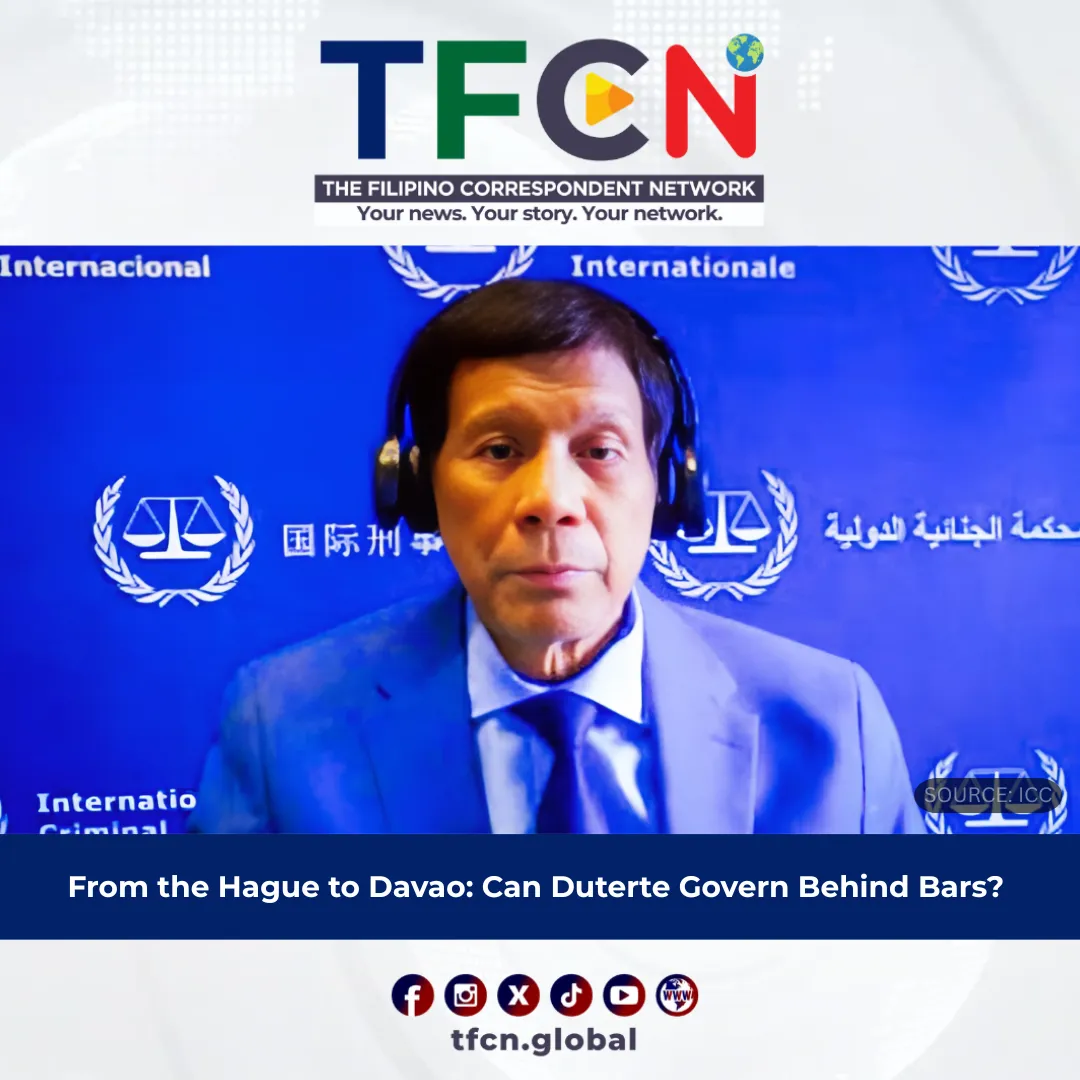
From the Hague to Davao: Can Duterte Govern Behind Bars?
THE HAGUE— The day after the Philippine midterm elections on May 12, the area outside Scheveningen Prison, home to the International Criminal Court (ICC) Detention Center, was noticeably quiet. The small grassy field where supporters of former Philippine president Rodrigo Duterte once gathered had been cleared of barricades, portable toilets, and trash cans. Since Duterte’s detention on March 12, his supporters had frequently visited the site, sharing potluck meals, singing, dancing, and listening to speeches from Duterte family members and well-known personalities. Following the departure of Duterte’s son Paolo before the elections, his brother Bong Duterte arrived to show support.
The supporters since about two weeks ago had been told by the Hague police to vacate the grassy area, a small playground with a pingpong table, in front of the houses next to the Scheveningen Prison visitors’ entrance. They were instead allowed to an area away from the houses, across the street from the main entrance, next to a busy bike path. It is smaller and relatively inconvenient compared to the grassy area that supporters dubbed as “Duterte Park”.
Despite attracting both praise and criticism, the gatherings reflected a common practice among Filipinos and other migrant communities—coming together around shared beliefs, food, and occasional gossip. However, the detained former president himself could not see his supporters or record messages for them due to security restrictions. His daughter Sara once showed him a gathering via phone, but otherwise, he received cards and letters. Gifts from supporters—including chocolates and clothing—had to be taken back due to limited space in his room.
Duterte's Mayoral Victory
While in detention, Duterte won the mayoral race in his stronghold, Davao City, on May 12. His son Sebastian “Baste” was elected vice mayor, and another son, Paolo, retained his congressional seat. His official proclamation as mayor has already been completed, but he must still take his oath before assuming office. His daughter Sara stated that the oath-taking must occur before June 30, marking the start of his term.
“We discussed three possible ways for him to take the oath,” Sara said. “His ICC lawyer advised that once we receive the proclamation documents, we’ll revisit the discussion.”
The Philippine Embassy in The Hague awaits instructions from the Commission on Elections (COMELEC), if and when authorized, on whether Duterte can take his oath. Typically, elected officials are sworn in before a Filipino judge, notary, or public official, though an embassy representative may perform the ceremony if authorized.
Governing from ICC Custody?
A pressing question remains: can a local official govern while detained abroad? If Duterte is formally charged, how will his trial affect his ability to lead?
Under the country’s election code, candidates facing criminal detention can still be declared winners. A precedent exists in the case of rebel soldier Antonio Trillanes IV, who won a Senate seat in 2007 while imprisoned at a military facility. However, he was barred from performing legislative duties until receiving amnesty in 2010. Ironically, Trillanes is a fierce critic of Duterte and was among the first to submit ICC filings against him in 2017. Another Duterte critic, former senator Leila de Lima, who was detained for six years, continued working to serve the remainder of her term. However, no precedent exists for a Filipino official governing from foreign detention.
On May 1, Duterte’s defense team challenged the ICC’s jurisdiction, arguing that when the ICC Pre-Trial Chamber I authorized an investigation in 2021, the required jurisdictional conditions were not met. They contend that under the Rome Statute, a country must be a State Party at the time jurisdiction is exercised.
On May 12, his lawyers also petitioned the ICC presidency to disqualify Judges Reine Adélaïde Sophie Alapini Gansou and María del Socorro Flores Liera from ruling on the jurisdiction matter.
The confirmation of charges against Duterte is scheduled for September 23. The legality of Duterte performing the responsibilities of his office while in the custody of an international court remains uncertain. Meanwhile, his supporters hope he will be released, return to Davao City, and personally run the city like a ‘tatay’ (father) to his children.

